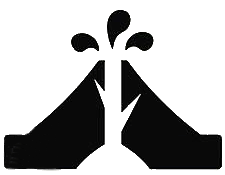-
Geology 101
Welcome to Geology! Learn about how Earth works, how to think like a geoscientist and how to read the stories written in rocks. -
Resources
If you want to delve deeper into the workings of our planet, and learn more about how we know what we know, here are some resources to get you started.
-
Tutorials
How-to videos to learn by example. -
About Us
The Geology Faculty in the Department of Geography and Environmental Science at Hunter College encompass a rich diversity of scientific expertise and interests that ranges from Physical, Historical, and Environmental geology, to Marine geology, Oceanography, Paleoceanography, and Global climate change.
 GEOL 101, Introductory Geology Lab, is a laboratory science course. This course assists you, in learning and expanding your understanding of the scale of the Earth and the forces that shape it with laboratory and field experiences.
GEOL 101, Introductory Geology Lab, is a laboratory science course. This course assists you, in learning and expanding your understanding of the scale of the Earth and the forces that shape it with laboratory and field experiences.